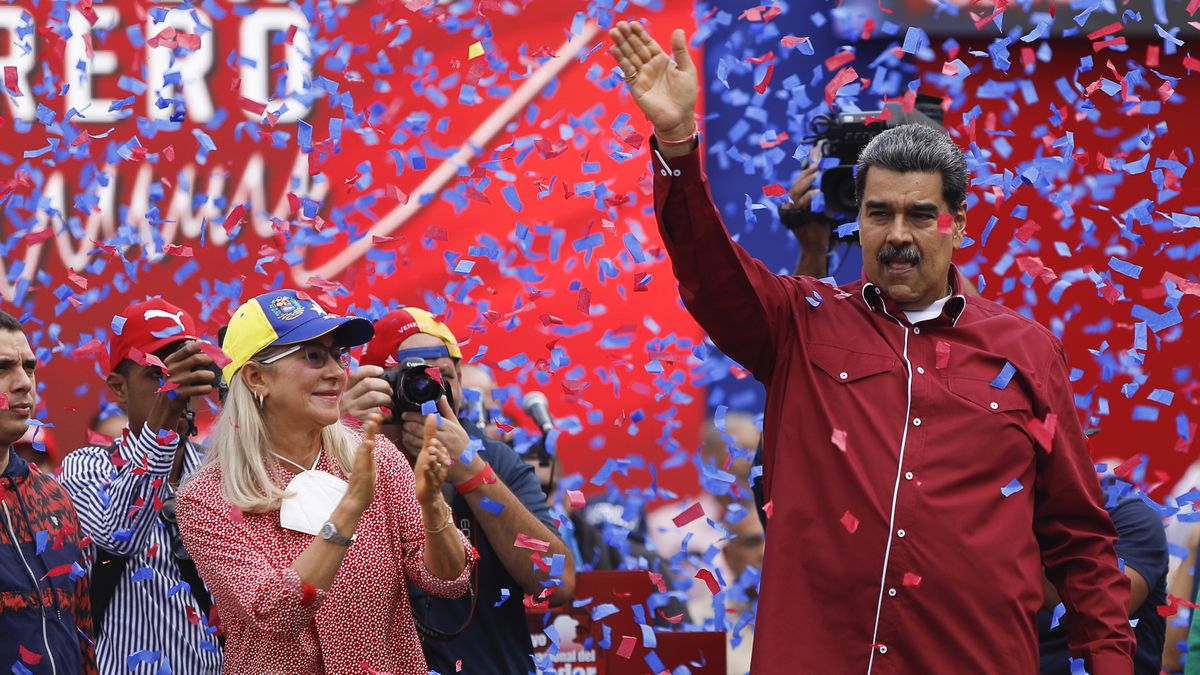The political and social situation in Venezuela remains at a standstill, but contacts continue at a high level in an effort to defuse the situation. Jorge Rodriguez, head of Venezuela’s National Assembly and Nicolás Maduro’s right-hand man, met Joe Biden’s adviser Juan Gonzalez in the Qatari capital Doha three weeks ago, according to official sources. The meeting was held without mediators or third parties.
Qatar has taken an unexpected role in mediating between the White House and the Chavista government. In addition to holding this meeting, he has taken steps to mediate between the two countries, which have not been close for the past few months. Despite the rush to organize guaranteed elections in Venezuela in 2024, the cold is absolutely on. The monarchy, led by the Al Thani family, has taken up the space left by Colombia, which went all-in on removing the issue from its foreign policy priorities in the first months of Gustavo Pedro’s government.
According to the same sources, Rodriguez and González, the advisor for the Western Hemisphere at the US National Security Council, met to establish a direct line of communication. At the meeting they talked about the release of prisoners and the need to normalize political life in Venezuela, which today is very far away. As with Venezuela and its relationship with the United States, these types of meetings at the highest level are common, but they are kept secret so that no one can interfere in the conversation. Neither Rodriguez nor Gonzalez, contacted by this newspaper, wanted to comment.
There is no date for the election
The positions between the US and Venezuela are far apart. Maduro has not set a date for holding general elections, which should, in theory, have an opposition candidate who could challenge him for the presidency. The resignation of the National Electoral Council (CNE) has made it difficult to conduct opposition primaries. In addition, Chavismo considers Maduro’s Colombian businessman Alex Chapp, who was tried in the United States for money laundering and corruption, and a Venezuelan diplomat. The White House has interpreted the gestures as a challenge to Chavismo and a clear sign that the country is not giving in despite international pressure to democratize the country.
Maduro’s argument for maintaining an ironclad stance is that the United States has not lifted international sanctions on his government. Chavismo blames the punishments for the deep economic crisis the country has been experiencing for the past seven years. “If they want free elections, we want unfettered elections,” the president said in November. The report leaves no room for second interpretations. Chavismo has also accused Biden of not releasing $3,000 to $5,000 million — of Venezuelan funds frozen abroad — as they agreed to with the opposition at a negotiating table in Mexico late last year. The money, administered by the UN Foundation, was a breath of fresh air in the deepening Venezuelan crisis.
Join EL PAÍS to follow all the news and read without limits.
Register
However, the U.S. considers Maduro suddenly unmoved after showing goodwill to negotiate. Other countries have the same opinion. The French president, Emmanuel Macron, and Petro himself have asked him to set an election date to move closer to office, but he has not done so and is unlikely to do so in the short term. Washington gave the Chevron oil company a license to operate on Venezuelan soil, which seemed like an outstretched hand. From that moment on, most optimists believed that concessions were going to happen on both sides, but that was not the case. No progress last semester.
Maduro has no intention of giving up land or easing any path. In recent months, it has restored internal power and diplomatic jurisdiction. After several years without leaving the country, was seen at some international and regional summits. Thanks to oil revenues and a certain liberalization of the economy, the economic situation has overcome the dire moment experienced two years ago, although growth is still within the reach of some. With all this in mind, the President has toughened his demands in the framework of political negotiations with the opposition parties.
The outlook is not rosy. Talks with the opposition have stalled in Mexico since November, with Chavismo refusing to return to the table. Now, Maduro is demanding a complete and progressive lifting of sanctions, as agreed, in order to restart dialogue. Difficult to resolve this rift, both sides found themselves in unsuspecting Qatar. The secret meeting that now goes beyond is to at least build a bridge between the two distrustful actors. The results remain to be seen.
Follow all international information Facebook And Twitteror inside Our weekly newsletter.
Subscribe to continue reading
Read without limitations

“Music ninja. Analyst. Typical coffee lover. Travel evangelist. Proud explorer.”

:quality(85)/cloudfront-us-east-1.images.arcpublishing.com/infobae/TEQF6EONZRFGLLLDIDD4L2O4EE.jpg)

:quality(75)/cloudfront-us-east-1.images.arcpublishing.com/elcomercio/XU32LRAEZFDDPNVHLFU3CKVBYY.jpg)



More Stories
Earthquake in the US today, Wednesday, May 29 – Earthquake’s exact time, magnitude and location via USGS | USGS | composition
President Arrivalo is left with no alternatives to dismissing the Attorney General
Passenger dies after jumping off world’s largest cruise ship in Florida